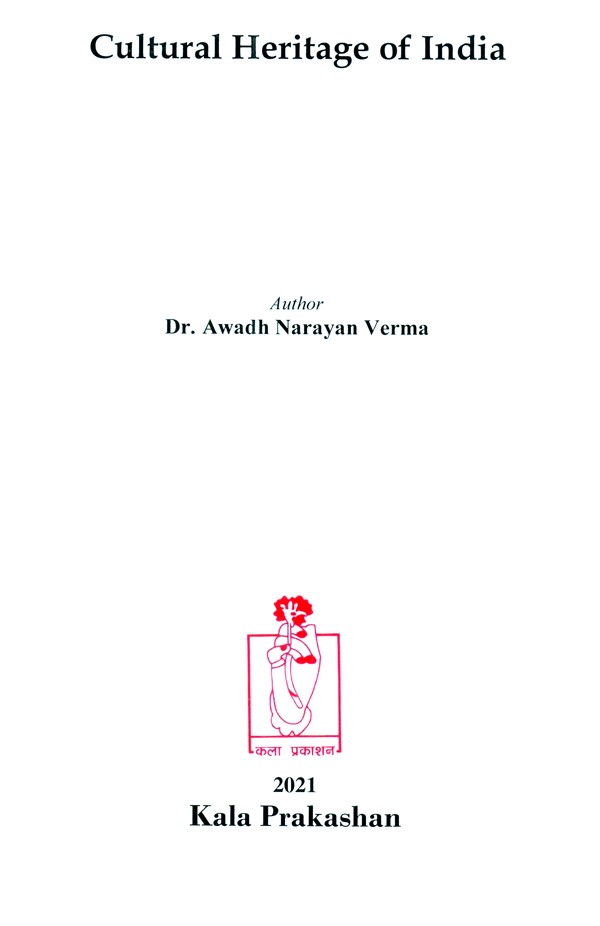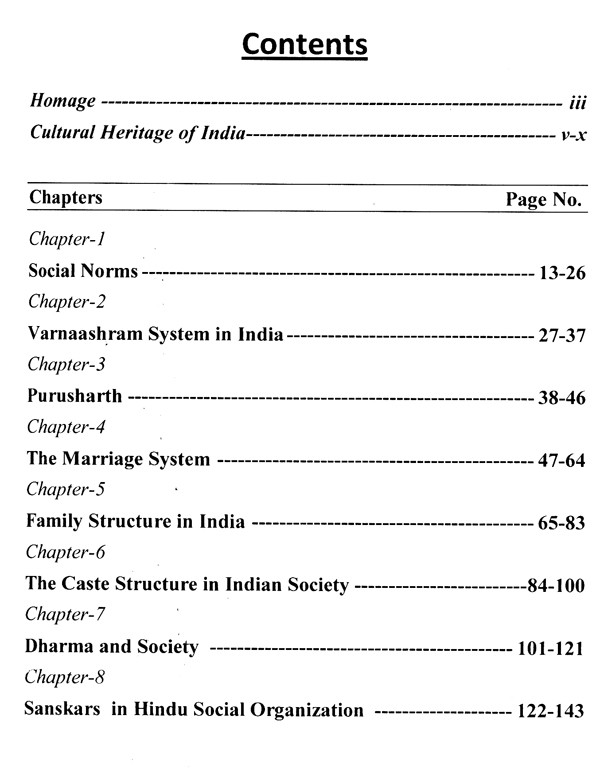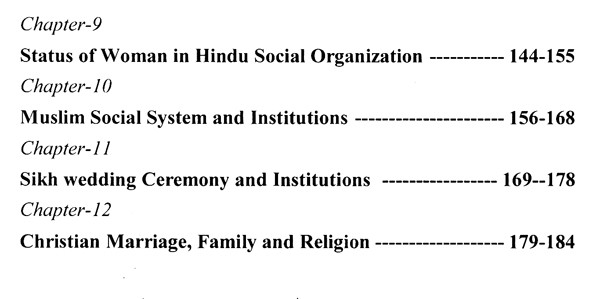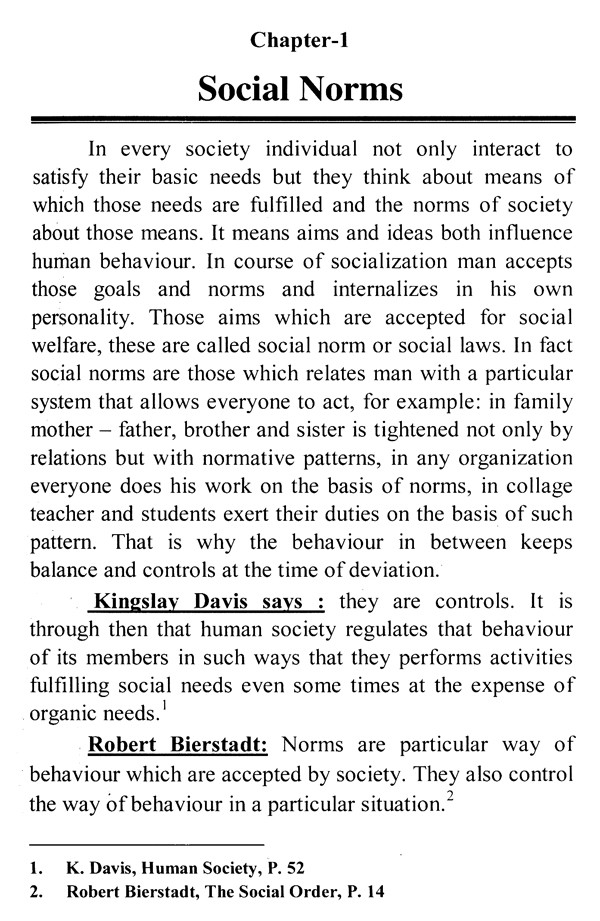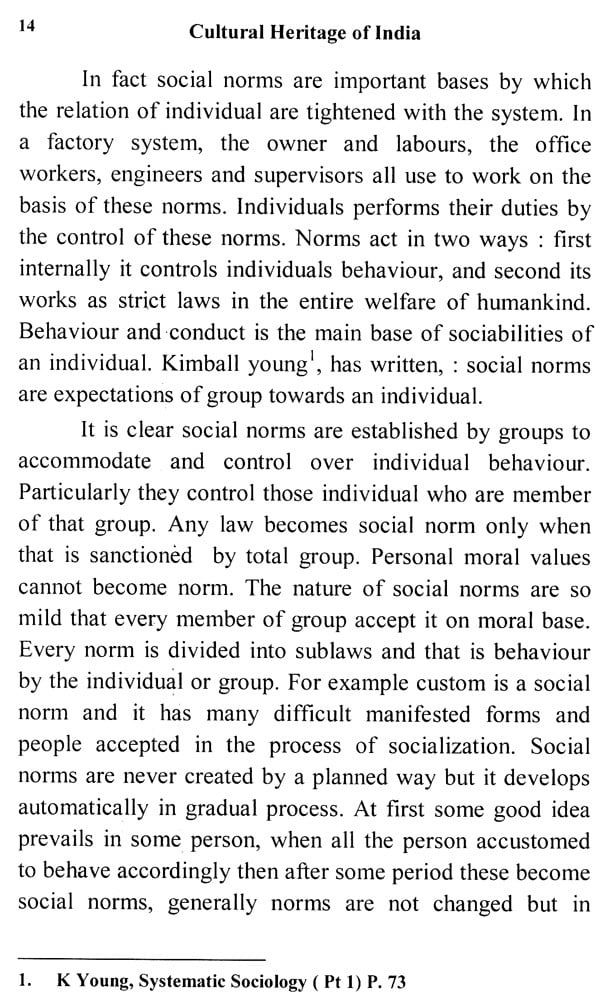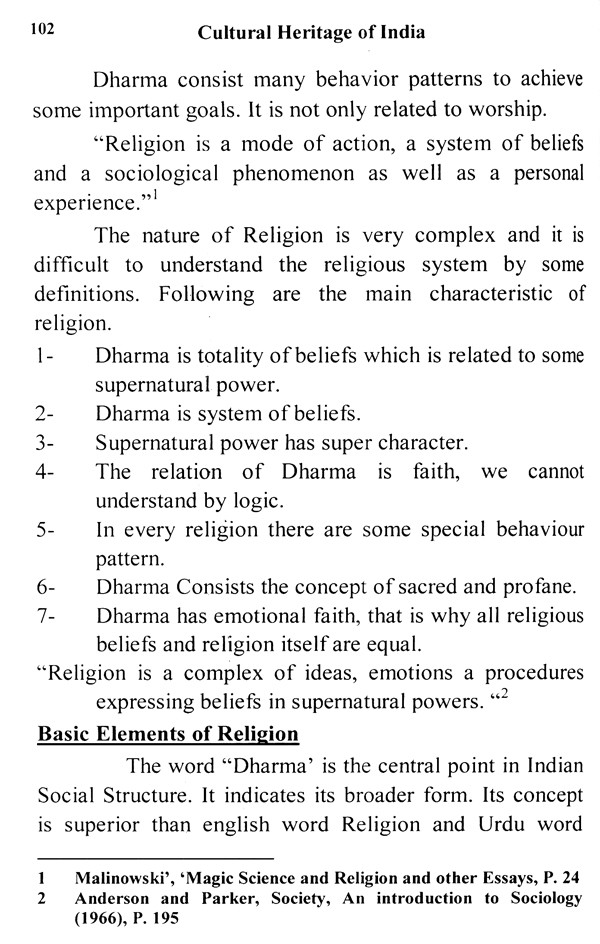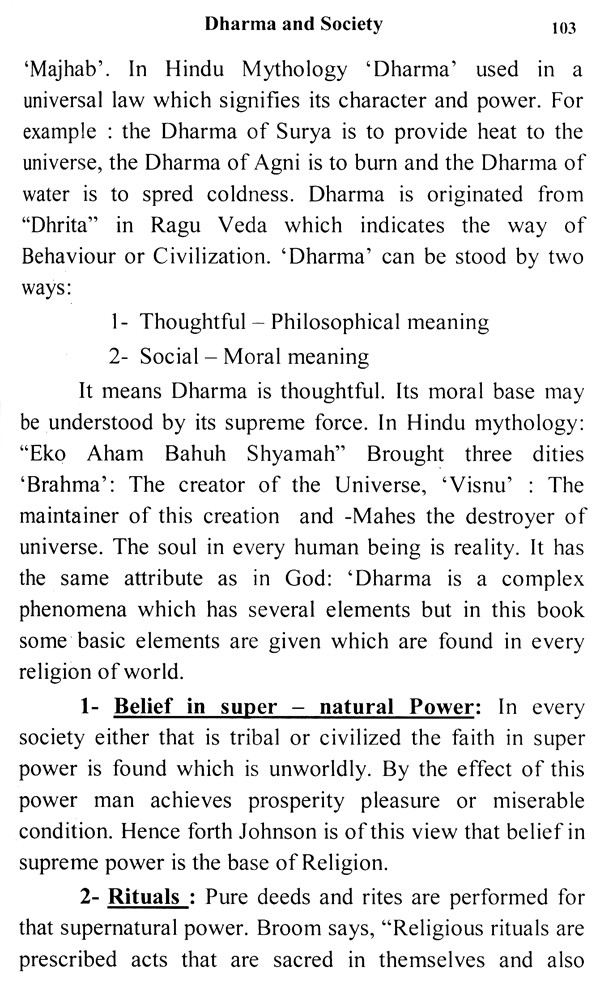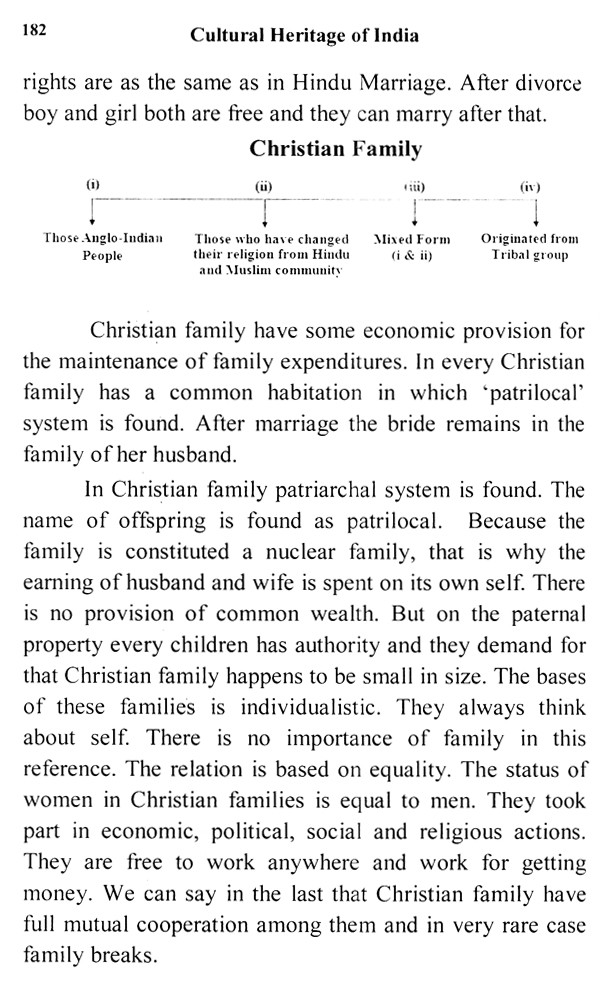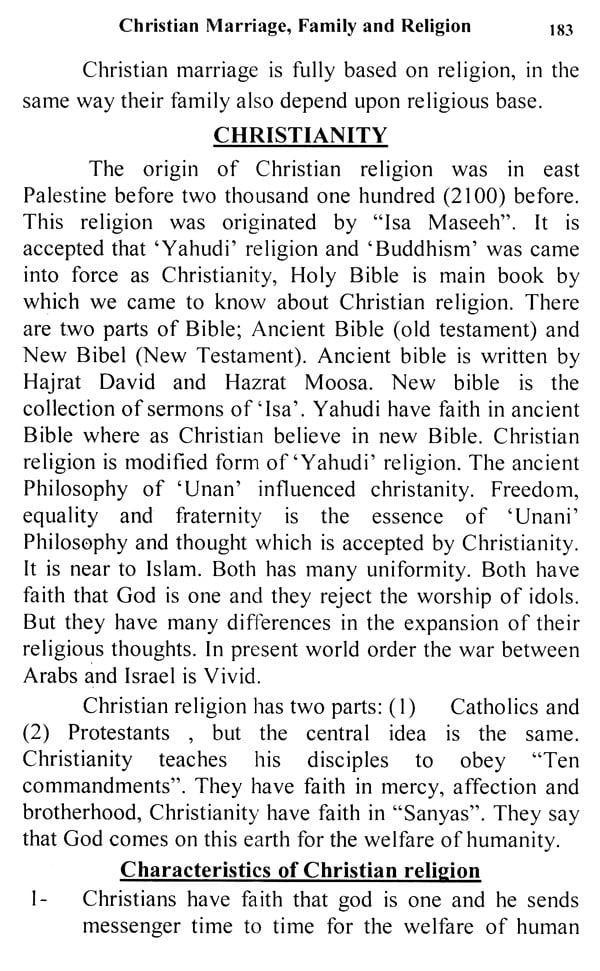
Cultural Heritage of India
Book Specification
| Item Code: | UAW038 |
| Author: | Awadh Narayan Verma |
| Publisher: | KALA PRAKASHAN |
| Language: | English |
| Edition: | 2021 |
| ISBN: | 9789387199903 |
| Pages: | 184 |
| Cover: | HARDCOVER |
| Other Details | 9.00 X 6.00 inch |
| Weight | 320 gm |
Book Description
The chapter scheme is arranged in such a way that a student of Sociology, History and culture and relatively all the social sciences pertaining social norms, which are vividly expressed here in this book. In this way this book will provide all the readers the complete and perfect knowledge about social life from early civilization to the modern times. Our Vedas, Puranas, Upnisheds and other religious books give inspiration to live in society in such a way which may lead to the highest goal of human life. Our cultural heritage always reminds us to make our life sublime.
In 1966 I was admitted in Ph.D program after passing through written examination. After submission of my thesis in 1969 I was appointed in the Department of Sociology, Banaras Hindu University. Meanwhile I applied several places for the post of Lecturer under aegis of Gorakhpur University. I joined as lecturer Head Department of Sociology BRD BD PG Collage Asharm Barhaj, Deoria in August 1970. After 3 years I thought to change the place but could not due to the affectionate behaviour of people, Student and collage authorities, I then thought to remain their up to retirement.
Amid this period I attended about forty Seminars of UP sociological and All India Sociological Conferences. I got a chance to be participant in International Seminar on world peace and International Order at Indian Institute of Technology, Kanpur where delegates from Tokyo Moscow, Paris and USA, Harvard, Colombia and Pennsylvania. I also presented a paper on World Peace the entire world is on the threshold of destruction through Nuclear Weapons.
I then passed my time through teaching to the student of BA and MA classes. On 30th June 2007 I retired from my post and came Varanasi to leave here. This is a simple life sketch of my Career.
Culture is abstract in the sense that it is manifest in behaviour and in the result of behaviour but neither the behaviour itself nor the tangible results, since culture must be inferred from observation of uniformities in behaviour, it in to some extent an imperfect or approximate, construct of the observes, for example a language is a part of culture and a scientific description of a language must certainly be based on observation of the way in which people actually speak, 'A language is equally true of a norm, a value, a role, a belief, a technique or any other item of cultural behaviour, then, is to a large extent of cultural, but it is not culture.
**Contents and Sample Pages**
